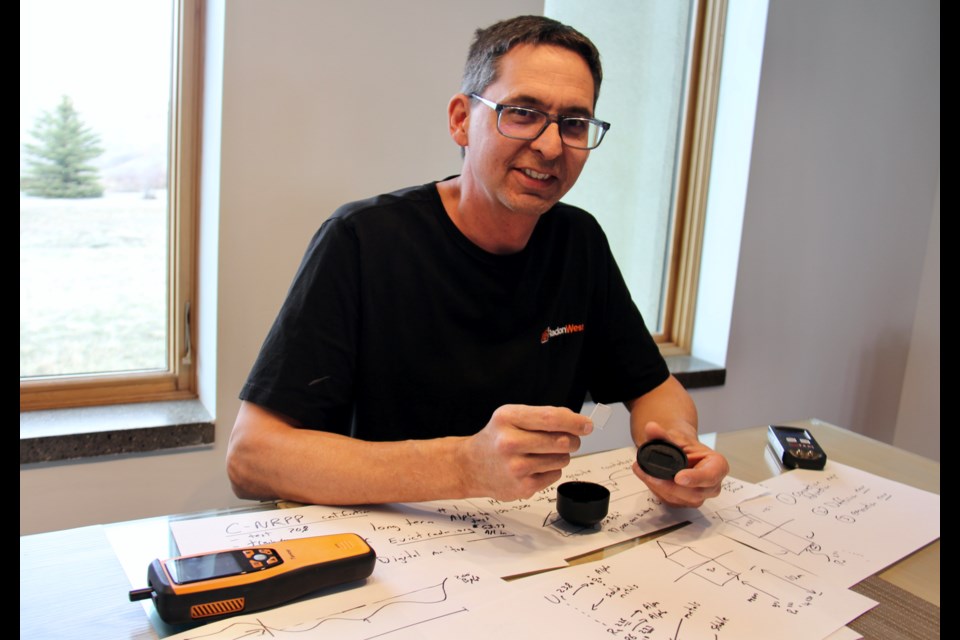An Alberta scientist is one of the most prominent figures in Canada's radon mitigation scene.
Colin Dumais, who lives south of Okotoks, owns Radon West, an internationally-recognized radon mitigation and testing company.
He is one of only two certified radon mitigation trainers in Canada.
"I've now been training across Canada and the rest of the world," he said. "I think I've trained about 90 per cent of all [certified radon mitigation professionals] in Canada."
Dumais considers himself to be at the forefront of the growing field of radon mitigation.
"People thought we were crazy that there was radon in Alberta," he said. "I think six out of seven people that we tested with that little machine at the very beginning were high [in radon levels]."
What is radon and why test?
He said every house has defects and that any gap or crack in a house, even the size of a fingernail, can let in harmful amounts of radon gas.
"What's happening is it's sucking on the bottom of your house like a vacuum," he said. "It's called thermal stack effect."
Because of this, he said that peak radon levels occur during winter, which is when windows and doors tend to be shut, preventing thorough ventilation.
Radon testing should be done for a minimum of three months. It can be done at any time of year, but it is recommended during the heating season, which encompasses October through April.
Dumais makes it clear that assumptions about radon tests should not be made based on weather or seasons, saying, "If you're high [in radon] in the winter, you might very well be high all year round."
When it comes to testing, Dumais said the best choice is a long-term test kit, which detects radon in the air.
"Radon gets into this device through the edges," he said, opening up a kit to demonstrate the CR-39 polycarbonate interior.
Dumais said electronic testing equipment is gaining some popularity but that he still recommends the tried-and-true method of the long-term test kits.
Evict Radon, a national cancer prevention study led by Dr. Aaron Goodarzi that offers these test kits, is Dumais' recommendation. Learn more about the study and ordering a kit here.
Certified radon mitigation professionals are the best option
Dumais, who sits on the Canadian Association of Radon Scientists and Technologists board of directors, emphasized the importance of hiring qualified radon professionals when it comes to radon mitigation.
"There's 172 certified professionals in Canada. There's 38 in Alberta," he said. "Anybody can say they're a radon person and hang up a sign and start fixing radon with zero training, but the reason why you want to get certified is because your name gets put on a list of certified contractors and homeowners have more assurance."
Hiring radon mitigation professionals with the Canadian – National Radon Proficiency Program (C-NRPP) certification gives homeowners peace of mind when it comes to testing, mitigation and overall best practices.
Health Canada, Canadian Lung Association and Canadian Cancer Society all additionally recommend that radon mitigation professionals have C-NRPP certification.
Dumais said a common misconception is that water is the most dangerous source of household radon, when in actuality the top priority should be testing the air.
Dumais said his work in radon mitigation has helped advance the field nationwide, even worldwide.
"Now, Canada's ahead. When we travel across the world, our Canadian process is the best. We actually, in Canada, understand how to use the building science to fix radon better than any country that we've seen.
"That's probably my biggest, single biggest contribution is re-imagining how the physical process of designing a system works."




